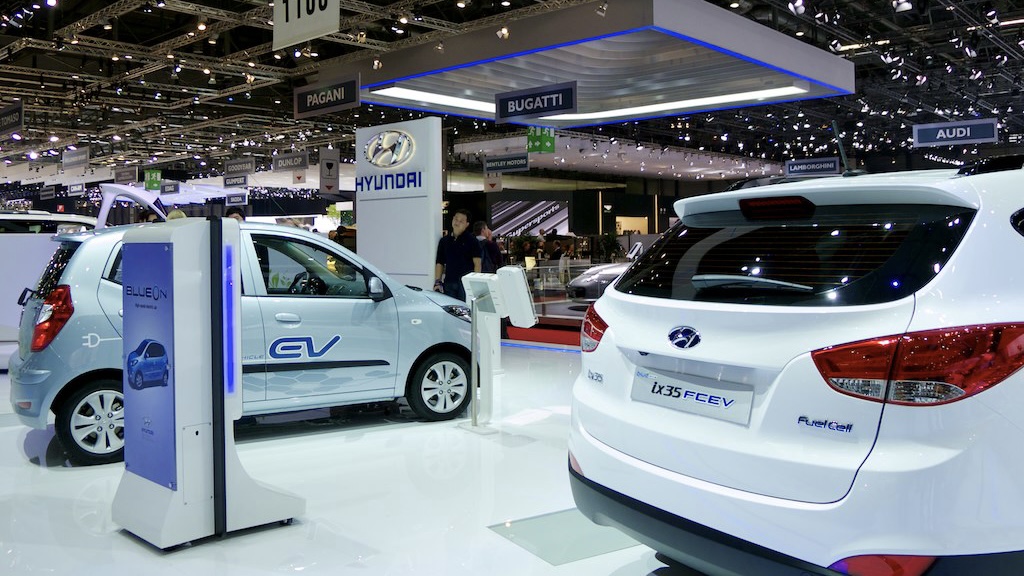Most electric vehicles on the road today are powered by batteries. But battery EVs are not the only EVs.
Fuel cell EVs run on hydrogen gas, which mixes with oxygen in a chemical reaction to create electricity.
The hydrogen is stored in a tank on board the vehicle.
Terry: “So it’s very much like gassing up a car right now, in that you pull into a station, you attach a nozzle, this time for a high-pressure gas as opposed to a liquid, and you refuel in a matter of minutes.”
Seth Terry is co-founder of New Day Hydrogen, a startup that’s developing hydrogen fueling stations, which remain rare outside California.
He says fuel cell vehicles have some advantages over battery EVs — especially for trucking. Fueling up is quicker than charging, the vehicles can go several hundred miles on a tank, and they’re not weighed down by heavy batteries.
Terry: “And for that reason, you can carry more cargo.”
Like battery EVs, fuel cell vehicles do not emit climate-warming tailpipe pollution when driven.
But conventional ways of producing the hydrogen gas the vehicles run on do create carbon pollution.
So Terry says it will be important to instead produce hydrogen using clean, renewable energy — maximizing the climate benefits that fuel cell EVs can provide.
Reporting credit: Sarah Kennedy / Shannon Young / ChavoBart Digital Media
We help millions of people understand climate change and what to do about it. Help us reach even more people like you.


